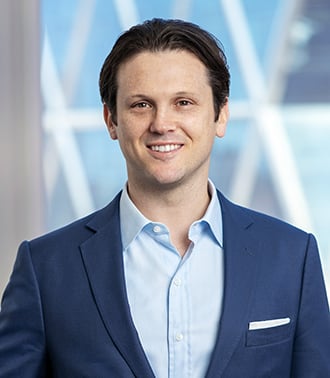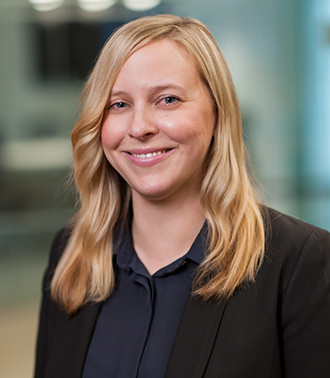California Evidence Code 801.1: What You Need To Know About the New California Law Governing Expert Testimony
Effective January 1, 2024, the California Evidence Code will contain a new provision governing expert testimony that effectively raises the standard for defense experts testifying as to medical causation relating to alternative causes. Often in medical causation cases, such as product liability actions, defense experts testify about possible alternative causes of the plaintiff’s injury to cast doubt on whether the defendant’s product caused the injury. This new provision provides that defense opinions related to alternative causes must be held to the same standard as that of plaintiff experts: they must be made to a reasonable medical probability, meaning the injury was “more likely than not” a result of the alternative cause. According to the legislative history, this law “heightens the bar to which experts will be held to ensure this particularly impactful testimony is reliable and not misleading.” (Sen. Judiciary Com. on Sen. Bill No. 652 (2023-2024 Reg. Sess. p. 7.)) In effect, this new provision may make it easier for plaintiffs to challenge defense expert testimony and prevent them from providing affirmative opinions on alternative causes in cases concerning medical causation.
The New Law
The new law stems from California Senate Bill No. 652 (2023-2024 Reg. Sess.) — sponsored by the Consumer Attorneys of California (per the group’s website, its mission is to “stand for plaintiffs seeking accountability from those who do wrong”) and codified as Section 801.1 — titled “Expert opinions regarding medical causation.” This law diverges from Kline v. Zimmer Inc. (2022) 79 Cal.App.5th 123, which held that the requirement of proving causation to a reasonable medical probability in a personal injury action applies “only to the party bearing the burden of proof on the issue which is the subject of the opinion.” The court’s rationale was that it was “imperative that the party without the burden of proof be allowed to suggest alternative causes … to less than a reasonable medical probability” because “to withhold such information from the jury is to deprive it of relevant information in assessing whether the plaintiff has met its ultimate burden of persuasion.”
Prompted by this ruling, the California legislature amended the California Evidence Code to add:
801.1. Expert opinions regarding medical causation.
(a) In a general civil case, as defined in Rule 1.6 of the California Rules of Court, where the party bearing the burden of proof proffers expert testimony regarding medical causation and where that party’s expert is required as a condition of testifying to opine that causation exists to a reasonable medical probability, the party not bearing the burden of proof may offer a contrary expert only if its expert is able to opine that the proffered alternative cause or causes each exists to a reasonable medical probability, except as provided in subdivision (b).
(b) Subdivision (a) does not preclude a witness testifying as an expert from testifying that a matter cannot meet a reasonable degree of probability in the applicable field, and providing the basis for that opinion.
Subsection (a) strays from the holding in Kline by mandating that the party not bearing the burden of proof (such as a corporate defendant) can offer an expert opinion on an alternative cause of the plaintiff’s injury only if the expert is able to opine that the proffered alternative cause or causes each exists to a reasonable medical probability. The “reasonable medical probability” standard described in Kline remains. As stated in Kline, this standard “mirrors the more-likely-than-not standard of proof in general negligence actions.” In other words, possible or attenuated potential causes are not likely to pass muster under 801.1.
Subsection (b) includes an exception. Under this section, a defense expert can still “rebut” the testimony of plaintiff’s expert by explaining that the proffered cause cannot meet a reasonable degree of probability in the applicable field because, for example, the plaintiff’s expert failed to consider or rule out other alternative causes. Likewise, it does not alter the scope of cross-examination of plaintiff’s expert.
Takeaways and Practical Implications
This law is unlikely to have a major impact in cases where there is a clear alternative cause adequately supported by underlying medical evidence and literature. However, the application of this rule is unlikely to be straightforward because the exception leaves room for parties to frame admission of expert testimony regarding alternative causes in a way that places it within the exception.
There are a few practical implications that are clear with respect to affirmative opinions under subsection (a):
- Another tool for plaintiffs to exclude expert testimony: This rule will likely give plaintiffs a new basis to move to exclude defense expert testimony. For example, plaintiffs may argue that a defense expert’s alternative causation opinion is not grounded in adequate evidence in order for the opinion to be held to a reasonable degree of medical probability. Expert opinions will need to be supported by adequate medical evidence and literature concerning risk factors for the injury, including epidemiological studies supporting the association between the risk factor and injury.
- Discovery: Defendants may be wise to seek more extensive discovery from plaintiffs on their medical history and consult with experts earlier in the discovery process in order to identify significant alternative causes and ensure the expert is armed with medical records, deposition testimony, and peer-reviewed literature.
- Testimony: It is common for experts to opine that they “cannot rule out” a given risk factor, but those days are no more under 801.1. Experts will need to be careful — at trial and at deposition — not to characterize an affirmative alternative cause as an attenuated risk factor that cannot be ruled out.
- Expert disclosure: Lawyers must be diligent to use the right language in disclosing expert testimony to ensure that it either meets this heightened standard or is directed at challenging the opposition’s expert opinion on causation.
For more information regarding expert testimony under this new California law, please contact any of the authors of this Advisory or your primary Arnold & Porter attorney.
© Arnold & Porter Kaye Scholer LLP 2023 All Rights Reserved. This Advisory is intended to be a general summary of the law and does not constitute legal advice. You should consult with counsel to determine applicable legal requirements in a specific fact situation.


